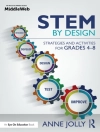Instructional Strategies for Students with Mild, Moderate, and Severe Intellectual Disability supports teacher educators who are preparing pre-service or in-service teachers to instruct students with intellectual disability from preschool through transition. As a solid, research based methods textbook, it focuses on providing strategies and approaches for how to teach across the spectrum of intellectual abilities and shows how teaching these students involves attention to evidence-based practice. The book presents academic, functional, and behavioral instructional strategies for all these populations.
Tabella dei contenuti
Part I. Perspectives on Intellectual Disability
Chapter 1: Understanding Intellectual Disability – Richard M. Gargiulo, Emily C. Bouck
Historical Perspectives on Intellectual Disability
Identification and Assessment of Intellectual Disability
Evolving Definitions of Intellectual Disability
Classification of Individuals with Intellectual Disability
Prevalence of Intellectual Disability
Chapter 2: Foundational Concepts: Etiology of Intellectual Disability and Characteristics of Students with Intellectual Disability – Richard M. Gargiulo, Emily C. Bouck
Prenatal Causes of Intellectual Disability
Perinatal Causes of Intellectual Disability
Postnatal Causes of Intellectual Disability
Learning Characteristics of Students with Intellectual Disability
Social and Behavioral Characteristics of Students with Intellectual Disability
Chapter 3: Educational Issues Affecting Students with Intellectual Disability – Emily C. Bouck, Richard M. Gargiulo
Legislation Affecting Students with Intellectual Disability
Individualized Education Programs
Contemporary Educational Issues
What to Teach Students with Intellectual Disability
Where to Teach Students with Intellectual Disability
Part II. Educational Concerns Across the School Years for Students with Intellectual Disability
Chapter 4: Assessing and Evaluating Students with Intellectual Disability – Ginevra R. Courtade, Robert C. Pennington
What is Assessment?
Norm Referenced Tests
Criterion-Referenced Tests
Formative and Summative Assessments
Curriculum-Based Evaluations
Ecological Assessment
Assessment of Student Preferences
Assessment for Effective Instruction
Participation in Accountability Systems
Alternate Assessment
Chapter 5 Behavioral Interventions for Students with Intellectual Disability – E. Amanda Boutot, Kylan Turner, Samuel A. Di Gangi
Overview of Behavior Challenges and Approaches for Students with Intellectual Disabilities: Preschool Through Secondary
Applied Behavior Analysis
Functional Behavior Assessment
Antecedent Interventions
Addressing Challenging Behaviors in the Classroom
Chapter 6: Assistive Technology for Students with Intellectual Disability – Emily C. Bouck, Richard M. Gargiulo
Understanding Assistive Technology
Assistive Technology to Support Academics Across the Life Span
Assistive Technology to Support Life Skills Across the Life Span
Assistive Technology to Support Behavior Across the Life Span
Part III. Preschool Students with Intellectual Disability
Chapter 7 Teaching Academic Skills to Preschool Students with Intellectual Disability – David F. Cihak, Joan Grim
Overview of Academic Skills for Preschool Students with Intellectual Disability
General Instructional Strategies
Academic Instruction
Chapter 8 Life Skills for Preschool Students with Intellectual Disability – Megan Purcell, Teresa Taber Doughty
Overview of Life Skills for Preschool Students
Determining What and Where to Teach
General Instructional Approaches
Components of a Life Skills Curriculum for Preschool Students
Part IV. Elementary Age Students with Intellectual Disability
Chapter 9 Teaching Academic Skills to Elementary Age Students with Intellectual Disability – David F. Cihak, Cate C. Smith
Overview of Academic Skills for Elementary Age Students
General Instructional Strategies
Academic Instruction
Chapter 10 Life Skills for Elementary Age Students with Intellectual Disability – Teresa Taber Doughty
Overview of Life Skills for Elementary Age Students
Determining What and Where to Teach
General Instructional Approaches
Components of a Life Skills Curriculum for Elementary Age Students
Part V. Adolescents and Young Adults with Intellectual Disability
Chapter 11 Teaching Academic Skills to Secondary Students with Intellectual Disability – Jordan Shurr, Teresa Taber Doughty
Overview of Academic Skills for Secondary Students
General Instructional Strategies
Academic Instruction
Chapter 12 Life Skills for Secondary Students with Intellectual Disability – Teresa Taber Doughty, Jordan Shurr
Overview of Life Skills for Secondary Students
Determining What and Where to Teach
General Instructional Approaches
Components of a Life Skills Curriculum for Secondary Students
Chapter 13 Transition Planning for Secondary Students with Intellectual Disability – Michael L. Wehmeyer, Karrie A. Shogren
Transition Defined
An Overview of Transition Planning
Transition from Early Childhood Special Education
Transition from Elementary to Secondary Education
Transition from High School
Post School Outcomes and Services
Circa l’autore
Emily Bouck is an Associate Professor of Special Education in the Department of Counseling, Educational Psychology, and Special Education at Michigan State University. She received her doctorate in special education from Michigan State University. Dr. Bouck is the author of numerous peer-reviewed journal articles and chapters relating to her two main areas of research: mathematics education for students with disabilities and functional life-skills education for students with disabilities with a central theme of assistive technology throughout both areas. Dr. Bouck is a Past President of the Division on Autism and Developmental Disabilities of the Council for Exceptional Children and has also been active in the Technology and Media Division of the Council for Exceptional Children. Dr. Bouck taught courses on assistive technology; social, legal, and ethical issues in special education; special education methods; and doctoral seminars. She has experience working with a range of students with disabilities in school-settings from preschool through age 26.












